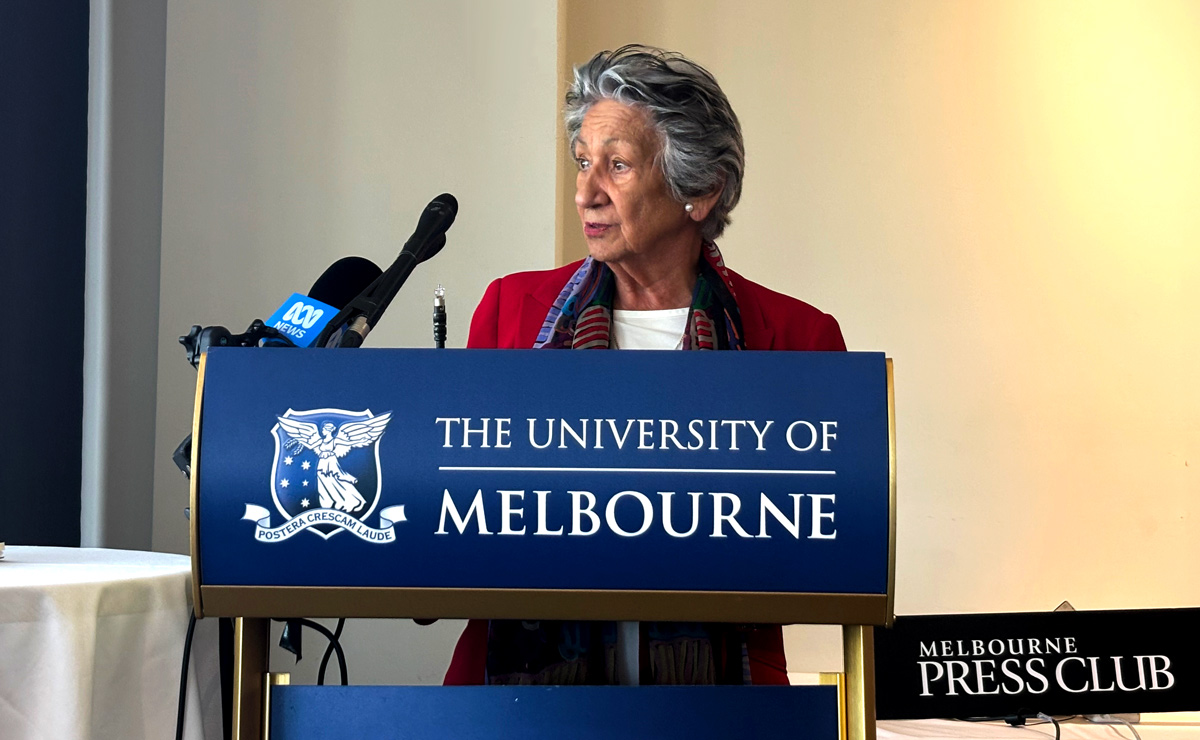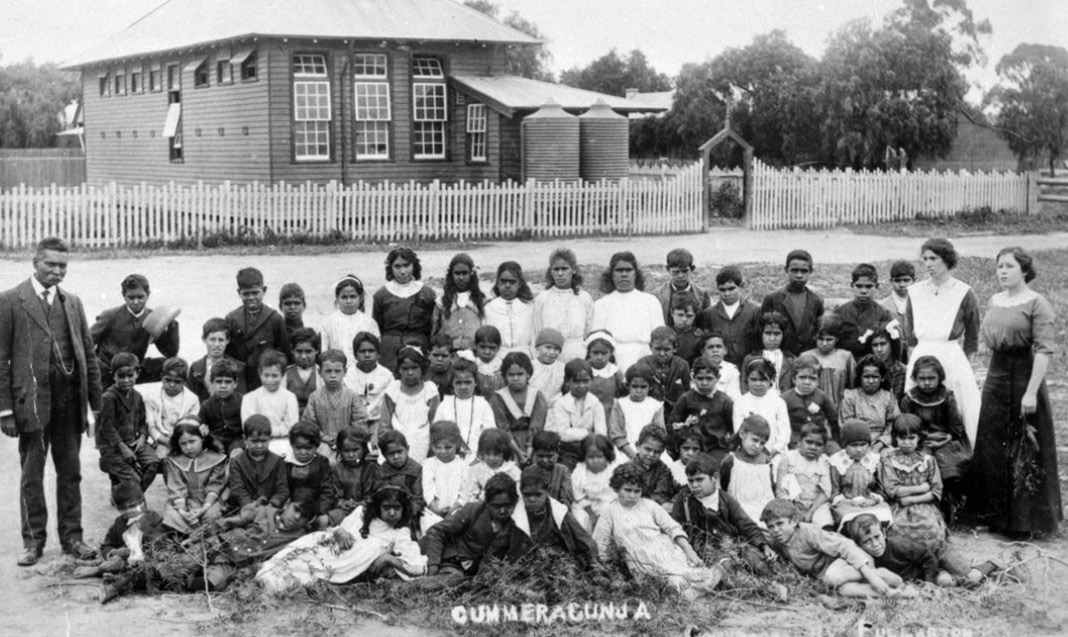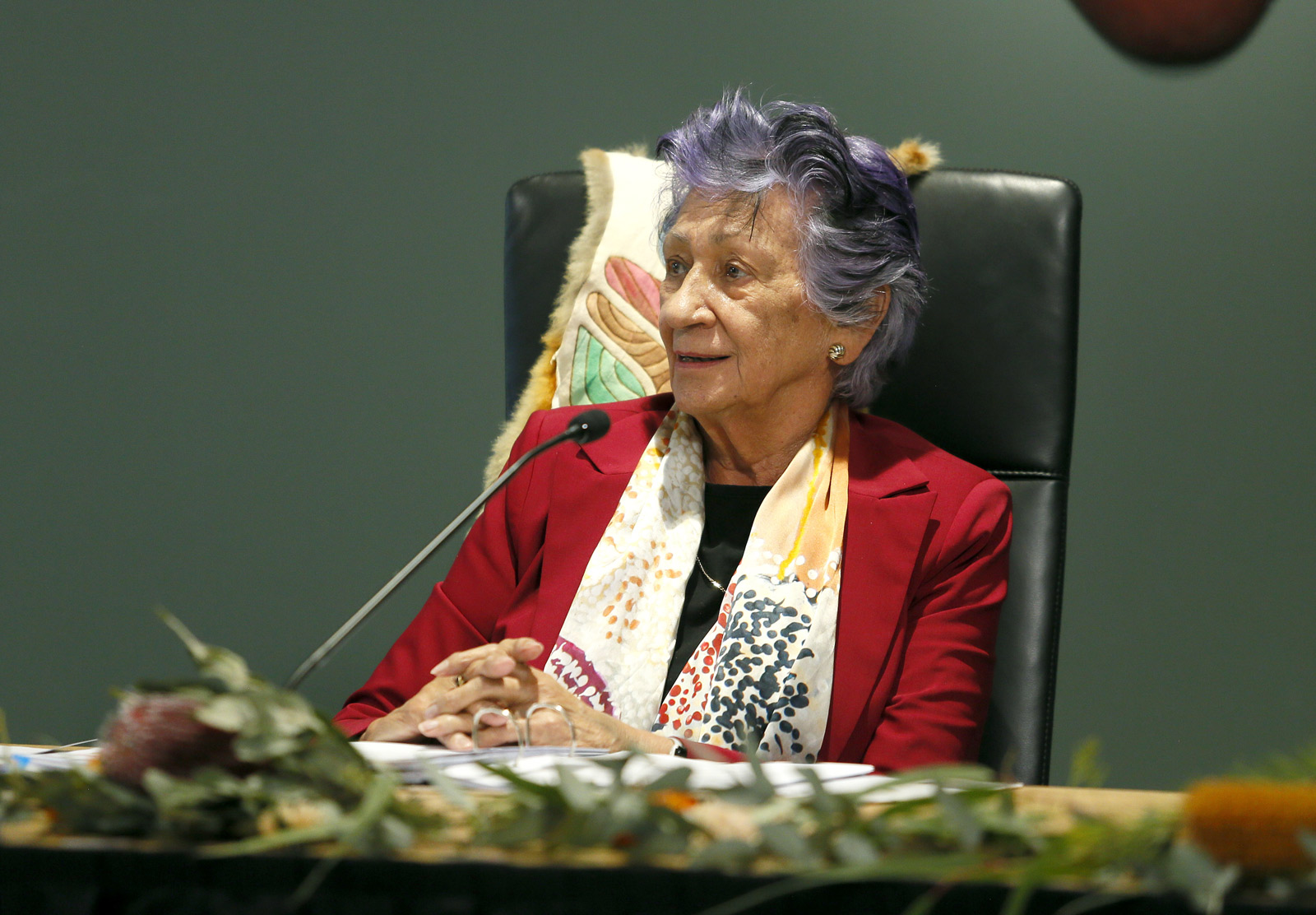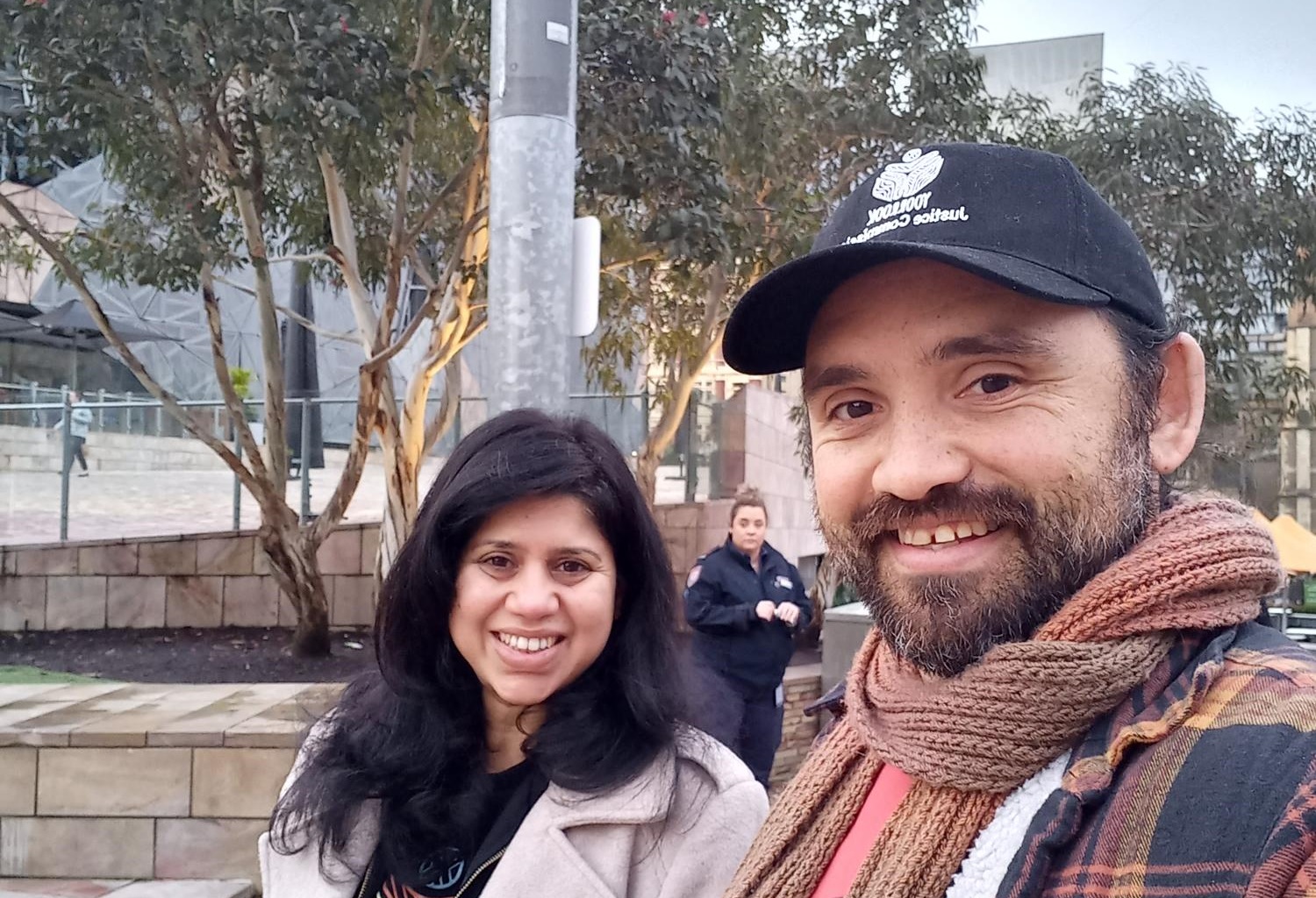
Why did you want to become a Truth Receiver?
I saw a lot of pain and suffering growing up. I decided I wanted to be a part of making a difference. I got into Dardi Munwurro and started listening to other people’s stories. Then I started to hear my own story, started to see things in a different way. I realised I can start to heal and transform and it starts with me. The more I heal, the more I can be there for others.
I worked as a chef at the Mullum Mullum Indigenous Gathering Place where I found opportunities to sit in circles and listen to people share their stories. When I saw the Truth Receiver role come up at Yoorrook, I thought that given my experience and skills, I could help create impact by supporting people on their journeys. I want to create that impact.
Yoorrook’s three pillar approach to truth telling really resonates with me – truth, understanding, transformation. We have got to tell the truth. People need to know what happened so we can have a better collective understanding of the past and the ongoing challenges our mob face. From there we can have greater solidarity to create the transformational change that’s needed.
Why is it important that people make a submission to Yoorrook?
Making a submission is about creating change for future generations. Nothing functions well without balance, and we are out of balance because of the injustice that has happened and because the impact of that injustice continues. This process is about righting the wrongs of the past so that in the future there is harmony and balance, and our people and our history is better understood and we can all thrive together.
The time is now. We’ve got limited time for the truth telling process to be undertaken through Yoorrook. This time has been dedicated for the process of a royal commission to hear the stories. Yoorrook will make recommendations from the stories you share. They will be used as a way to inform changes and recommendations for society. We’re probably not going to get a big opportunity to create change and make a difference like this again. It’s time to jump on board and share your story.
What happens after someone registers that they would like to speak to a Truth Receiver
When I receive someone’s enquiry, I’m really keen to catch up with them. I’m eager to find out about someone – their story, their experience, their truth. I give them a call and connect with them and hear about what they’d like to share. I go over what the Yoorrook Justice Commission is all about, and why this is an important process for Aboriginal people to be part of, highlighting the value of submissions and thanking them.
Different people might want a different approach, so I’m sensitive to that and adjust based on their needs. I communicate that they can share their truth in a range of ways, and I talk about the supports available if they want them, such as social and emotional wellbeing support, and free, independent legal advice. If someone is keen to share, I try to make time as soon as possible to meet. It’s really about giving people options and being flexible, and it doesn’t need to be business hours.
We as Aboriginal people are all like family members. When I meet someone who is thinking about making a submission I treat them as though they are my brother or sister or aunty or uncle. I come in with that respect and honour the relationship – that’s how a genuine conversation is going to happen and the truth is going to arrive.
Some people want you to lead them and ask questions. Others are facilitators, I’ll sit and listen to what they want to share. It’s a privilege to hear a person’s story. I’m learning and seeing things in a different way. It’s amazing what people say afterwards. So often they are thankful and say how much they got out of it. I get a lot out of that too.
Are all Yoorrook Truth Receivers First Peoples?
Our team is made up of First Nations people. They are all passionate about change and willing and interested in hearing people’s stories. They are working hard to make sure the truth telling process is a successful one. They are compassionate. They are non-judgmental. They are going to come without prejudice. They are going to listen to and capture our people’s stories. They are willing to travel wherever and whenever within the state of Victoria. We’re all driven to capture the stories of our people.
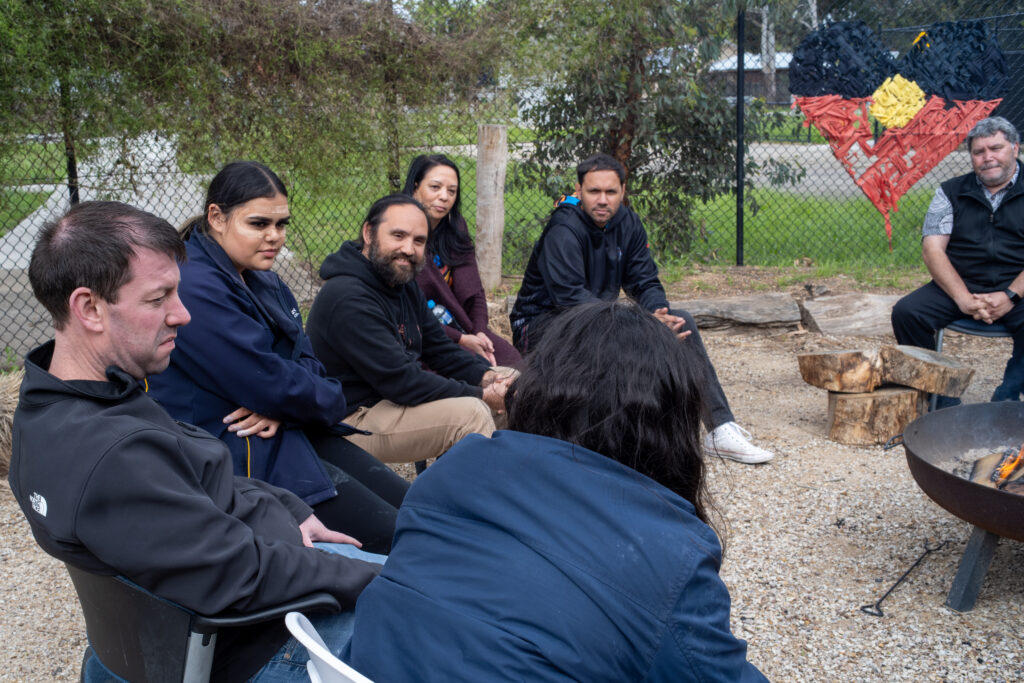
What kind of stories are you hearing?
I’ve heard a range of different stories since starting at Yoorrook. I’ve helped collect young people’s stories through art and dance. We heard their truths and understood what they are thinking and feeling.
I’ve heard from people who work in the child protection space about the challenges they face working with government. I heard from a young person about their life being in out-of-home care and her resilience. I heard from Elders who shared what they’ve been through in their lives, especially back in the day when racism was more extreme, and how they navigated that and the peacefulness that eventually came. Their stories and resistance were inspirational.
Another person shared their story, including the challenges she faced around her identity and not knowing who she was while struggling to get help from services when she was homeless. What was amazing to see was what she is doing now. She’s leading a big team of people that is helping our people who don’t have the tools to transform themselves and are using drugs and alcohol to feel good. She’s working in that space to help people.
Hearing the strength and resilience of mob and how our people stand up is energizing and inspiring.
What do you want to see out of the truth telling process?
I want to live in a more inclusive and harmonious country. But we can’t have harmony unless we have harmony with the First Peoples of this country. We have a collective responsibility to change this country to a better place, so people can be relieved of suffering, and of guilt and shame. I want to see all Australians fuller in their hearts, freer in their minds and freer in spirit.
